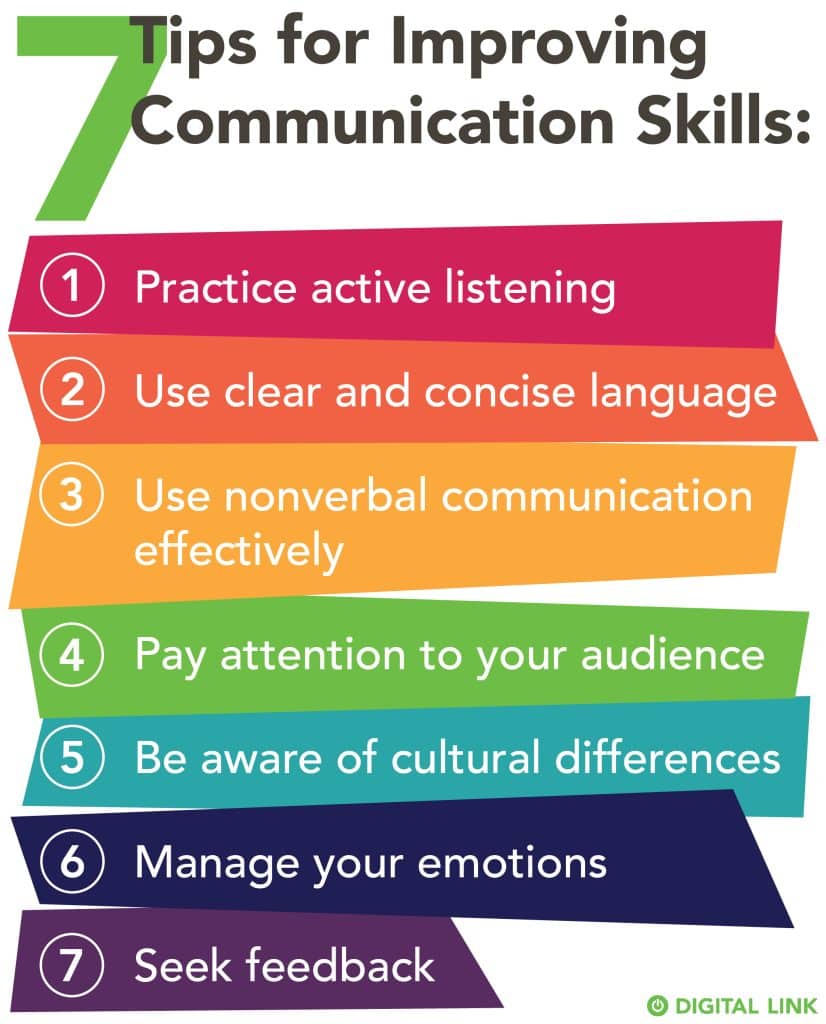
Last week, we explored the importance of communication skills, common barriers, and communication skills training and development. This week, we want to talk about the benefits of communication skills training and development and our top tips on how to improve communication skills.
Communication plays a significant role in your personal, and professional life. Whether you are in an industry that relies heavily on communicating with others or not, having the skills and abilities to successfully communicate with others is incredibly important.
Part of that success depends on the support of your organization or business, which is why we think that investing in communication training and development is beneficial to everyone.
Benefits of Communication Skills Training and Development
Investing in communication skills training and development can bring a wide range of advantages.
Some potential benefits include:
- Improved relationships: Persuasive communication skills can help you build positive and productive relationships with others, leading to a more harmonious and supportive environment.
- Increase confidence: With a clear plan and experience comes confidence. Being confident not only makes your messaging more effective, but it intensifies the receipt of your message.
- Builds Empathy: Communication is a two-way street. The ability to listen is at least as vital as being able to be understood. With understanding comes empathy which can guide your exchange in a compassionate way.
- Builds Trust: When people feel listened to, and with active listening, relationships are solidified, and trust is built.

Tips for Improving Communication Skills
Here are a few tips for improving your communication skills:
- Practice active listening: To be a good listener, you should try to fully understand what the other person is saying, ask clarifying questions, use rephrasing, and show that you are listening through nonverbal cues such as nodding and making eye contact. Be mindful for cultural meanings of body language.
- Use clear and concise language: Be as clear and specific as possible when communicating, using concrete examples, and avoiding jargon or technical language that may be confusing to others. Acronyms and industry-speak should be saved for technical writing documents (And only when properly defined).
- Use nonverbal communication effectively: Nonverbal communication, including facial expressions, body language, and gestures, play a powerful role in how your message is received. Ensure your nonverbal communication is congruent with your words. This will aid in reinforcing your message.
- Pay attention to your audience: Consider the needs and perspective of your audience when communicating, and tailor your message accordingly. This may involve adapting your language or delivery style to better suit the audience.
- Be aware of cultural differences: When communicating with someone from another culture, be aware that there may be differences in communication styles and norms. Try to learn about these differences and be respectful of them. When in doubt, ask! Most people are more than pleased to explain norms and expectations and this exchange may even strengthen the relationship as you show your concern.
- Manage your emotions: Emotions may become a barrier to effective communication. When feeling particularly emotional, take a moment to collect your thoughts prior to communicating. As previously said, there may be situations where moving the conversation to a future date may be the better choice.
- Seek feedback: Asking for feedback can help identify areas for improvement and provide opportunity to practice new techniques. Co-workers, supervisors, or others that you have solid relationships with can be counted on to provide honest and constructive feedback.
It can be overwhelming to select your route to development, but any single improvement will set you on the path to success. By applying these tips and strategies, you will improve your skills and enhance your effectiveness in a wide range of settings.
Liked this article?
We are adding more useful articles to our blog every week! Join our subscribers to stay up to date on digital security, marketing, and social media trends.
By entering your email, you agree to receive our monthly newsletter. You can unsubscribe at any time!


